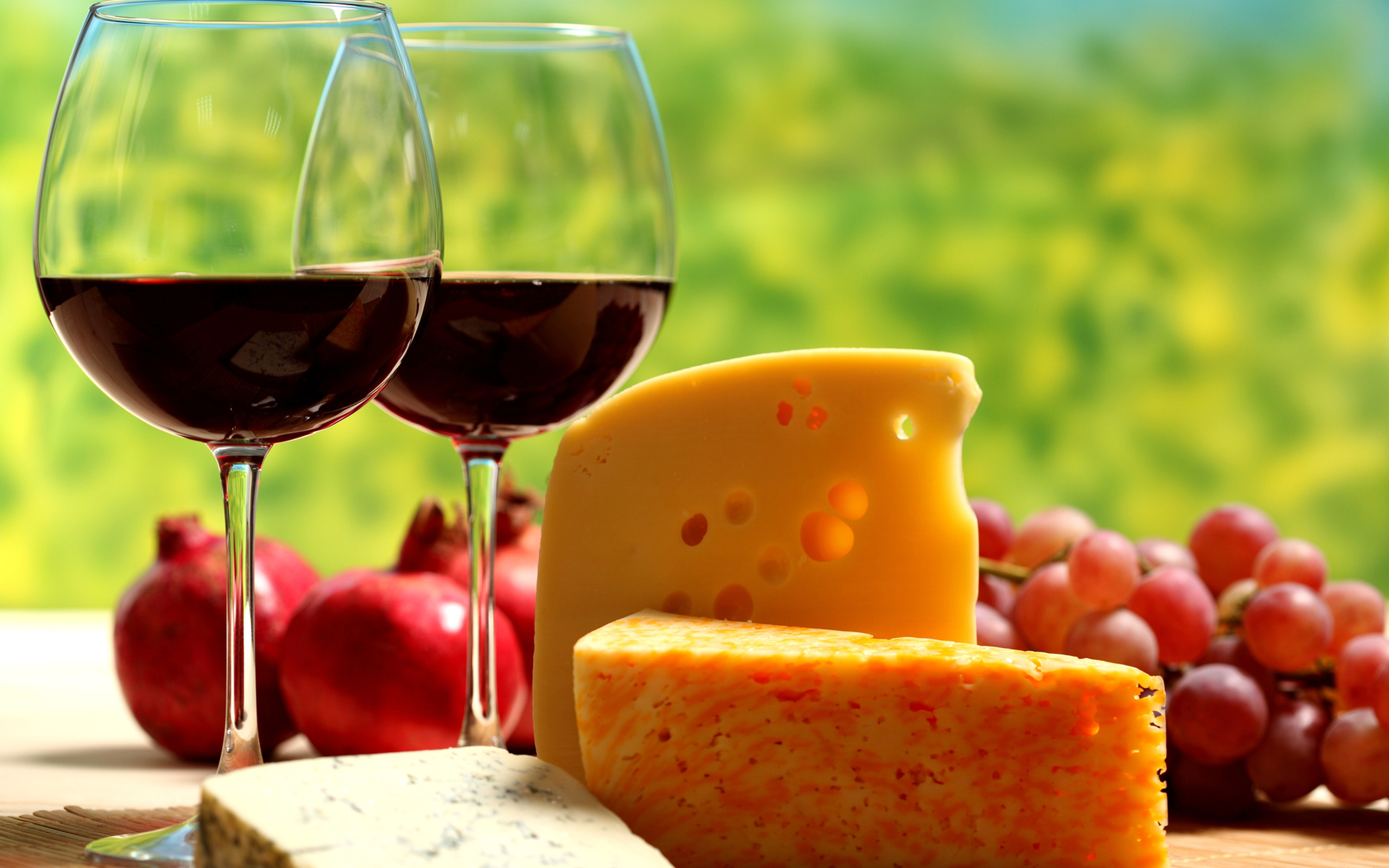It’s a longstanding tradition that red wine accompanies red meat and white wine is best with fish, but how do you select the perfect wine to pair with cheese?
Choosing a wine to perfectly complement a carefully crafted cheese platter can be challenging. Like wines, cheeses tend to have complex and varied flavor profiles. A few simple guidelines can help you match these dinner party classics to the delight of your guests.
The Aging Process
As cheese ages, its moisture content diminishes while fat and protein density increases. This intensifies and alters its flavors. Young, milky varieties generally have subtler, less nuanced flavors and more delicate textures; older selections become bolder, richer, and more full-bodied. Aging conditions have a direct impact on the flavor and texture outcomes of different cheeses. Cave-aged Brie becomes earthier as it ages but retains its spreadable texture thanks to its “bloomy” outer coating of yeast, mold, or fungus. As varieties with washed rinds age, they acquire flavor notes that can be nutty, bacon-like, or even stinky.
Wine, too, often becomes more complex with age. While sweeter, lighter flavors such as melon, spice, or citrus tend to dominate in younger wines, aged varieties can develop more forward oaky, earthy tones that can be reminiscent of toast, tobacco, or leather. Because both wine and cheese develop stronger flavors with time, a good rule of thumb to start with is to pair them according to age.
Other Factors to Consider
Given the complexity of both wine and cheese, there are of course other characteristics to keep in mind when presenting them together.
- Salty vs. sweet: Pairing sweet and salty flavors enhances both and invigorates the palate. Sweeter wines are delightful with salty feta or Gouda.
- Tannins: Wines that have a distinctly tannic taste go best with rich, fatty cheeses because they cleanse the palate, allowing you to fully experience the cheese’s flavor with each bite. However, tannic wines tend to overwhelm younger, more delicate chevre or Brie.
- Fruit and nuts: The same principle that makes these enhancements a staple on most cheese platters applies to your choice of wine as well. Wines with lighter fruit flavors pair nicely with young cheeses, those with deeper, sweeter notes like cherry or dried apricot work well with salty Grana or blue, and aged wines with nutty or bitter flavors work with rich, fatty aged or smoked cheddar.
- Region: Although not an absolute, matching products from the same region often results in a harmonious pairing. Wine and cheese produced in the same geographical area often have complementary flavors and work well together.
It’s often best to offer small pours of a variety of wines to match the varying flavors on your platter. If you want to select just one wine that will work with all of your cheese offerings, go with the one that’s a hit for any occasion – Champagne!

